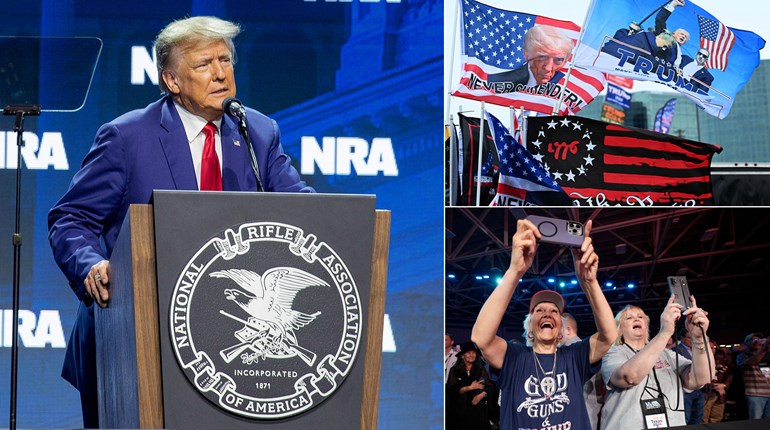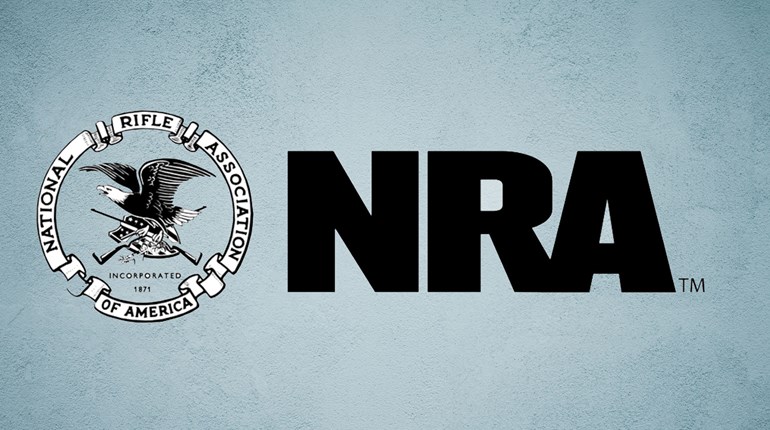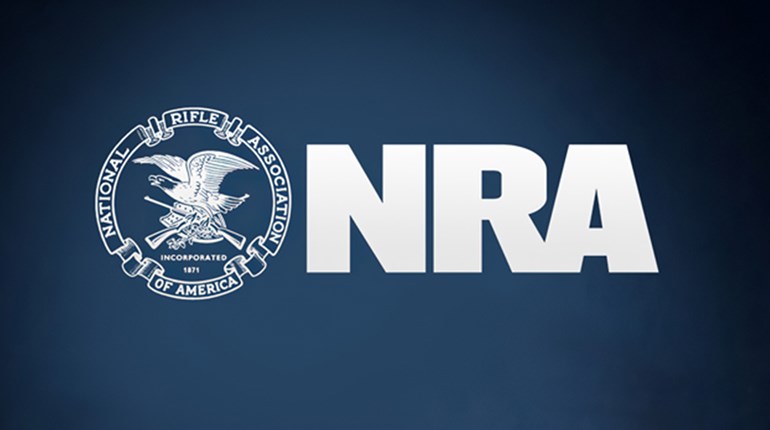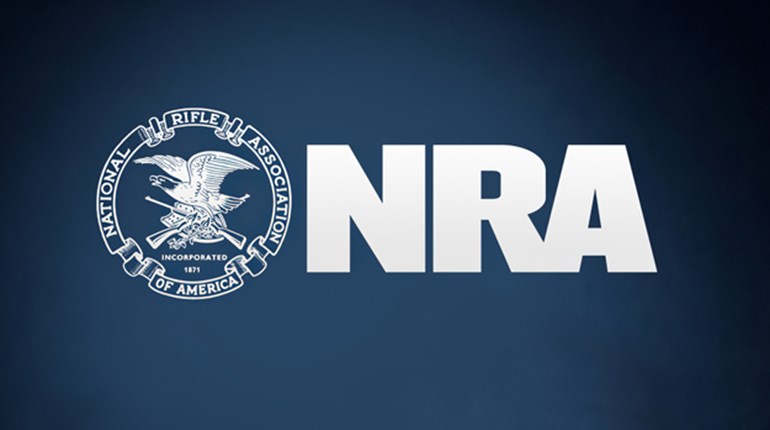
Gun-rights supporters have long understood that firearm registration leads to and facilitates gun-control advocates’ terminal goal of gun confiscation. What may be less clear to many gun owners is how our opponents seek to abuse gun registries and other firearm-transaction data to attack our rights in other ways.
Gun owners have every reason to oppose gun registration in order to prevent confiscation.
New York City has twice used its gun registry to confiscate arms. Starting in 1967, the Big Apple required residents to register their rifles and shotguns. Then, in 1991, the city banned certain configurations of semi-automatic firearms. The city used its registry to inform those with offending firearms that their guns needed to be removed from the city, disabled or forfeited to law enforcement. The city employed this tactic again as recently as 2013, following the reclassification of another group of rifles. Understanding this history, when New York state and Connecticut instituted registration schemes for commonly owned semi-automatic firearms in 2013, gun owners proved reluctant to comply.
Of course, the potential for misuse extends beyond comprehensive gun registries and to the collection and centralization of gun-owner data generally. In the last year, an increasing number of gun owners have come to understand the dangers posed by the Bureau of Alcohol, Tobacco, Firearms and Explosives’ (ATF) collection of out-of-business dealer records.
A commercial firearm typically enters the stream of commerce by going from a manufacturer to a distributor and then to a dealer. When a dealer sells a firearm to a customer, the prospective gun buyer fills out ATF Form 4473. Aside from a means to acquire the information necessary for National Instant Criminal Background Check System (NICS) checks, the form serves as a record of the firearm’s first commercial buyer. Under current ATF regulations, dealers are required to keep Form 4473s for 20 years.
This scheme acts as a sort of decentralized partial registry. Ostensibly, the purpose is to facilitate firearms traces during bona fide criminal investigations. When a firearm is found at a crime scene, ATF can use the serial number to track the firearm from the manufacturer to its first point of sale.
This regime has shown that it is prone to abuse.
Federal law requires dealers that go out of business to forward their last 20 years of Form 4473s to the ATF’s National Tracing Center. Some at ATF, and their anti-gun patrons, have sought to undermine statutory prohibitions on the creation of a federal firearms registry by advocating that these records be placed in a searchable digital database.
Moreover, the federal government has already demonstrated how this system can be used to facilitate confiscation. In 1994, the federal government reclassified certain shotguns that had been sold to the public like any normal firearm as “destructive devices” under the National Firearms Act (NFA). With this new classification, the shotguns were required to be registered in the National Firearm Registration and Transfer Record. In order to ensure compliance with the NFA, the ATF used the Form 4473 recordkeeping scheme to “forward trace” the shotguns from manufacturer to first commercial sale. Law-abiding gun owners were forced to register their property with the federal government or forfeit their firearms.
As the current tracing regime ends at a firearm buyer’s interaction with a dealer, lawful private transfers that occur outside of government oversight are a vital bulwark against the creation of a comprehensive registry and confiscation. A robust and legal secondary-transaction market ensures the government has no record of where a sizeable portion of the civilian firearm stock is located, frustrating any attempt at confiscation.
Americans’ longstanding right to make their own firearms for personal use also prevents complete record-keeping. This is why gun-control advocates work so diligently to shut off these avenues of private firearm acquisition. So-called “universal background checks” and home-manufacturing prohibitions are really just attempts to create a complete registry of all gun owners.
Aside from the obvious danger of firearm confiscation, gun-control advocates have been hard at work concocting new ways to misuse gun-owner data.
In late 2012, the New York newspaper The Journal News made national headlines by posting the personal information of the pistol-permit holders in Westchester and Rockland counties. As if the stunt were intended to create a shopping list for criminals, the short-lived harassment campaign even featured a map of pistol-permit holder addresses.
This is just the sort of political persecution that excites California’s one-party, anti-gun government.
The not-so-Golden State maintains detailed information on law-abiding gun owners. At the point of sale, firearm dealers must submit firearm-transaction data to the California Department of Justice’s Dealer Record of Sale (DROS) database. The system acts as a form of gun registration. Nearly all private firearm transfers are outlawed in California, forcing almost every firearm transaction into the DROS system. Moreover, owners of commonly owned semi-automatic firearms that the state has deemed to be “assault weapons” (an ever-expanding category of arms) are required to affirmatively register their property with the state.
California also requires ammunition purchasers to undergo a background check through a licensed ammunition vendor. Under this scheme, a person submits their private information to the state for review. If the personal identifying information matches an entry in the state’s Automated Firearm System (AFS), and the person has a registered transaction through DROS or a Carry Concealed Weapon license, the sale moves forward. If the person has no relevant entry in the AFS, the state conducts a full background check on the individual. Alternatively, the person may obtain a Certificate of Eligibility, which involves a fingerprinting and background-check procedure, the record of which is stored with the California DOJ. Similar to firearm purchases, the state maintains ammunition purchaser information in an “Ammunition Purchase Records File.”
To make matters worse, on Sept. 23, 2021, Gov. Gavin Newsom signed AB173 into law. The new law obliterates gun-owner privacy by requiring this growing mountain of sensitive data to be haphazardly shared with third-party “researchers.”
California has its own state-funded anti-gun factoid factory, the University of California Firearm Violence Research Center at UC Davis. Run by longtime gun-control advocate Garen Wintemute, the center is a way for anti-gun lawmakers to funnel tax dollars to a favored constituency. The gun-control project was established in 2016 with $5 million in taxpayer funding, with Newsom’s 2019 budget showering the center with another $3.85 million in plunder. The outfit also serves to apply a scientific facade to the types of ideologically motivated gun-control policies California’s lawmakers would push, regardless of any purported efficacy.
AB173 amended California law to share the firearm-related data collected under the state’s various gun- control schemes with the UC Davis gun-control research center. Worse, the statute states, “At the department’s discretion… information collected pursuant to this section may be provided to any other nonprofit bona fide research institution accredited by the United States Department of Education or the Council for Higher Education Accreditation for the study of the prevention of violence.” This means that anti-gun academics across the nation will have access to the personal information of California gun owners.
The research wing of billionaire media mogul Michael Bloomberg’s gun-control operation, the Johns Hopkins Bloomberg School of Public Health, should come to mind. One has to wonder if the California DOJ would cite the Council for Higher Education Accreditation’s international functions as justification to spread this sensitive data throughout the globe.
This breach of trust is particularly egregious given the statutory safeguards in place at the time many gun owners offered their personal information to the state. For instance, up until AB173, California Penal Code § 30352 made clear that the personal information collected pursuant to an ammunition transfer, “shall remain confidential and may be used by the [DOJ]… through the California Law Enforcement Telecommunications System, only for law enforcement purposes.” Now this data, provided under false pretenses, is available to any grad student able to articulate a hunch.
Given the gravity of California’s attack on gun-owner privacy, on January 5, NRA filed a federal lawsuit in the U.S. District Court for the Southern District of California to stop this dissemination of gun-owner data on the grounds that the scheme violates both the U.S. and California constitutions.
As a matter of federal law, the Fourteenth Amendment to the U.S. Constitution protects a right to privacy. NRA’s complaint pointed out that the U.S. Supreme Court has recognized “An ‘informational privacy’ interest… in precluding the disclosure, dissemination, or misuse of personal matters or sensitive personal confidential information.” California’s disclosure scheme also violates the Second Amendment, as AB173 is designed to chill the exercise of the right to keep and bear arms by exposing the personal information of those that choose to do so.
Regarding California law, section one, article one of the state constitution provides, “All people are by nature free and independent and have inalienable rights. Among these are enjoying and defending life and liberty, acquiring, possessing, and protecting … privacy.” Moreover, the Supreme Court of California has held that the privacy measure in the state constitution “is broader and more protective of privacy than the federal constitutional right of privacy as interpreted by the federal courts.”
As the first step in the lawsuit, on January 10, NRA filed a motion for a temporary restraining order to prevent the release of gun-owner information while the lawsuit is pending. As gun owners face irreparable harm from the state’s dissemination of their data, which cannot be retrieved once it is released, a TRO was warranted. While the TRO was denied, as I write this, NRA is seeking a preliminary injunction to stop any additional release of gun-owner data.
As history has made clear, the ultimate goal of any registration regime is gun confiscation. However, gun-control advocates who lack the political support for this end have proven that they are not above exploiting registration data to persecute gun owners. These efforts should underscore the importance of opposing gun registration in any form. Moreover, gun-rights supporters must recommit themselves to protecting the right to acquire firearms by means outside of government control—such as private firearm transfers and the right to make firearms for personal use.
In short, gun owners should register to vote, not their guns.


































